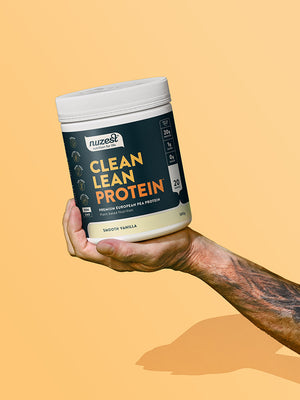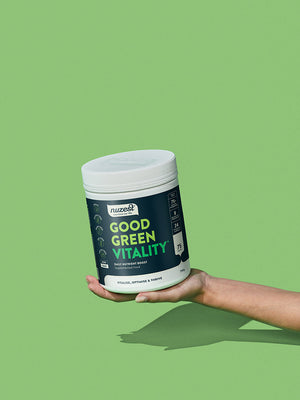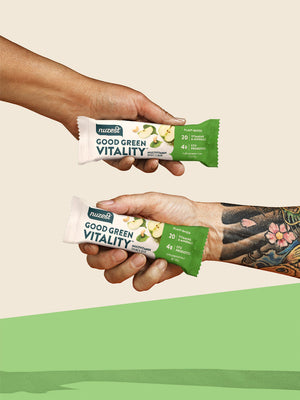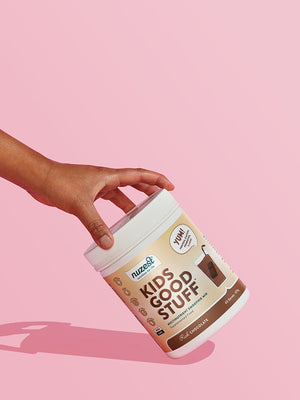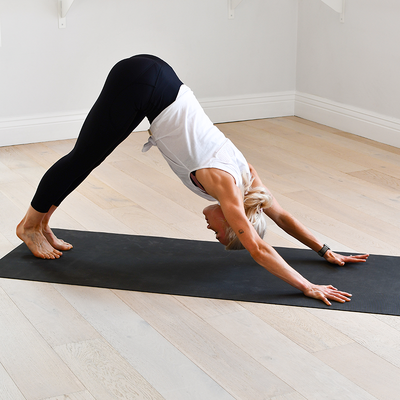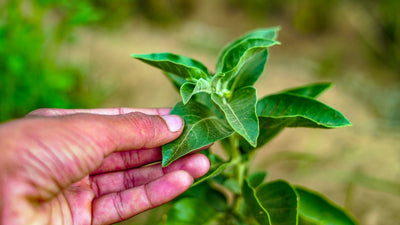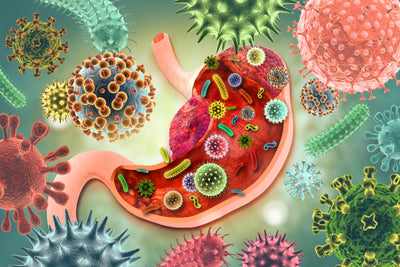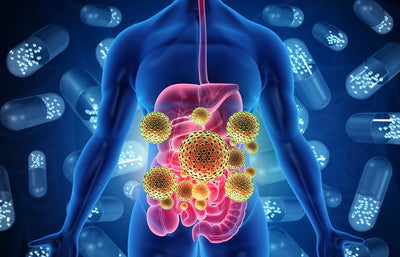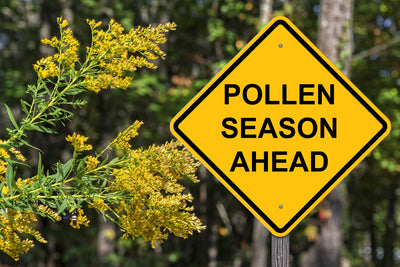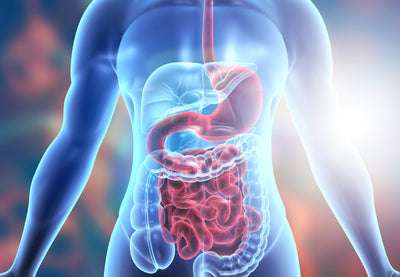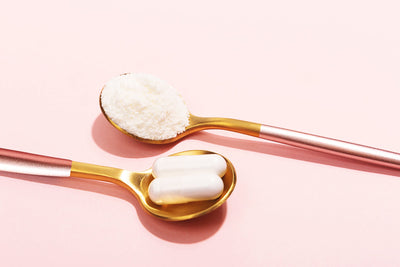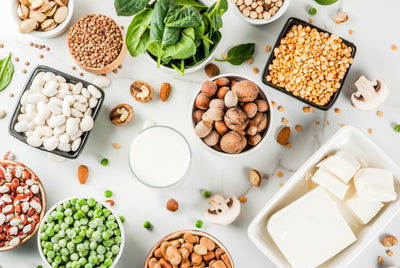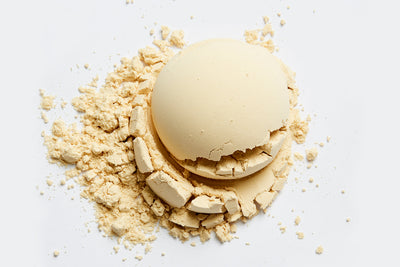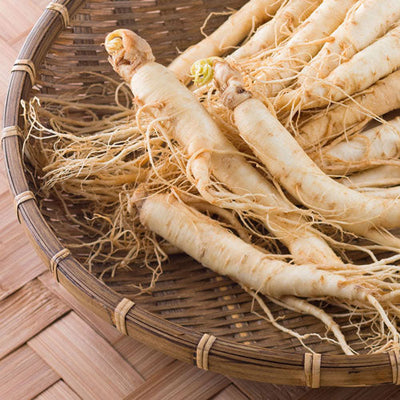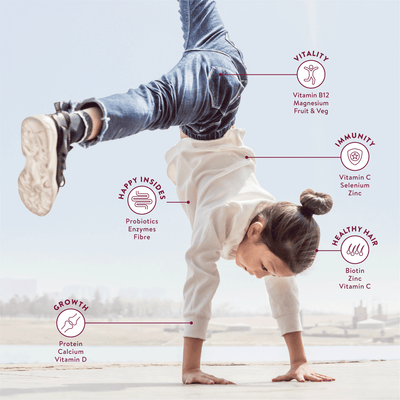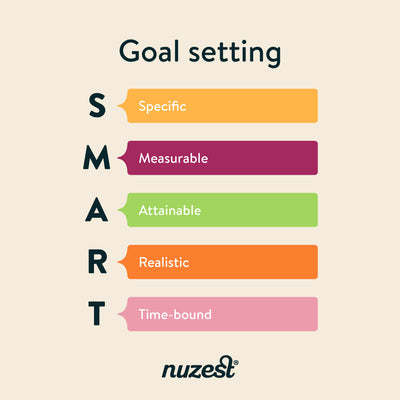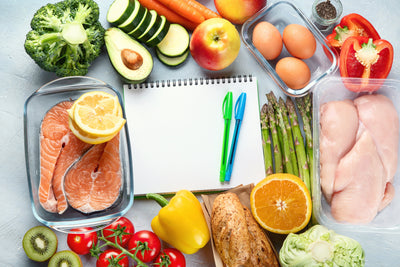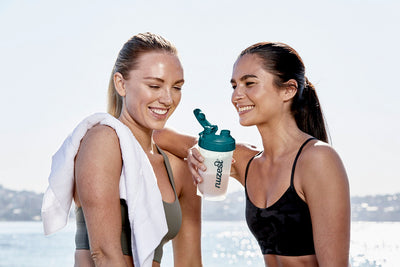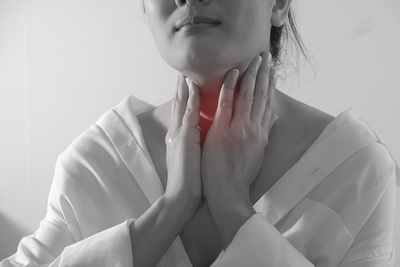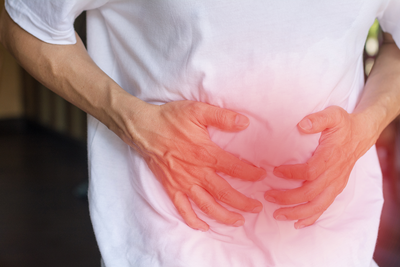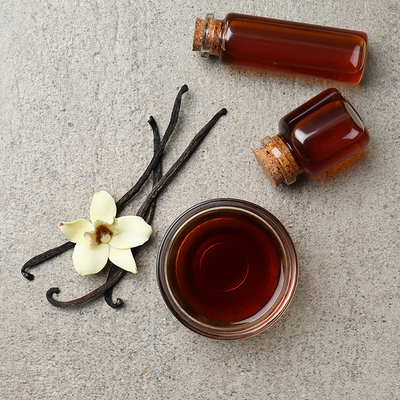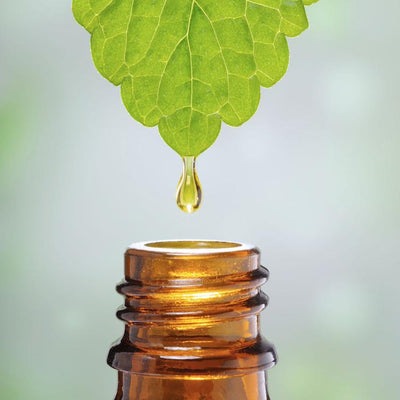
8 min read
Healthy Ageing with Clean Lean Protein
Posted By
Emma Linnea
Audience: Consumer
Author: Rachel Hawkins (Accredited Practicing Dietitian & Nutritionist)
We often hear about the importance of protein for the growth and maintenance of muscle mass, but what about the importance of protein as we age? Accredited Practicing Dietitian, Rachel Hawkins, discusses how protein can help to support healthy ageing below.
What is protein and why is it important?
Proteins are large molecules that are made up of smaller building blocks called amino acids. Protein is present in all living cells, thus has many important functional and structural properties.1
In the human body, protein can be found in:1,2
- muscle mass, bones, organs, hair skin and nails
- collagen which provides strength and structure to tissues such as cartilage
- haemoglobin which transports oxygen around the body
- enzymes which regulate aspects of metabolism by supporting chemical reactions that allow us to digest food and generate energy to contract muscles
- hormones which act as chemical messengers in the body
- antibodies which play a role in immunity
There are twenty amino acids that link together in different combinations to carry out varying functions listed above. In addition, protein can also be used as an energy source.
Of the twenty amino acids found in proteins, eleven of these can be made in the body. These are referred to as non-essential amino acids. The remaining nine amino acids cannot be made in the body; therefore, you must consume these in the diet in order for the body to function properly. These are called essential amino acids (as they are essential for normal bodily function).
Is all protein equal?
The nutritional value of a protein is measured by the quantity of essential amino acids it contains. Different foods contain different amounts of essential amino acids, therefore not all protein is made equal.
Animal products such as chicken, beef, fish and dairy contain all nine essential amino acids and are considered ‘complete’, high quality food sources of protein. Plant-based products such as beans, lentils, nuts and wholegrains typically lack at least one essential amino acid, thus are considered ‘incomplete’ proteins.
There are some plant-based foods such as soy products, quinoa and European golden peas, the peas used in Nuzest Clean Lean Protein, that contain all nine essential amino acids. This makes these foods a great addition to a vegan or vegetarian diet, as this way of eating makes it more challenging to ensure an adequate mix of essential amino acids are being consumed through the diet.
How much protein do we need?
The amount of protein that we need to consume via the diet varies depending on your age, weight, gender, and health status. 1 As a rough guide, it is suggested that healthy women aged 19-70 years require 0.75g protein per kilogram of body weight each day, while men in this same age bracket require 0.84g protein per kilogram of body weight each day.1
Do protein requirements change as we age?

Our protein requirements increase as we age. This is because ageing bodies process protein less efficiently, meaning that we need more of it in order to maintain muscle mass, strength, bone health and other physiological functions.3
The Australian and New Zealand Nutrient Reference Values indicate that men and women over 70 years of age should consume roughly 1g of protein per kilogram of body weight each day.1 However, experts in the field of protein and ageing suggest that a protein intake between 1.2-2g per kilogram of body weight each day is more appropriate in order to maintain structure and function.3,4 This means that a 75 year old woman who weighs 65kg should aim to consume between 78-130g protein each day.
What happens if we don't consume enough protein as we age?
Inadequate protein intake can impact our ability to maintain independence, quality of life and good health as we age. This is because one of the major threats to living independently is the loss of muscle mass, strength and function that occurs progressively from around 50 years of age. This is known as sarcopenia.5,6 The reduction of total body protein that occurs as we age also reduces physiological proteins such as organ tissue, blood components, and immune bodies, which contributes to impaired wound healing, loss of skin elasticity, and an inability to fight infection, thus resulting in longer recovery time following illness or injury.3,5,6
Why do we struggle to consume enough protein as we age?
It is not uncommon for people to eat less food with age. This can be attributed to factors such as a lack of appetite, changes to smell and taste, living alone, loss of interest in cooking, and difficultly in eating due to teeth, gum or denture problems. Eating less food means that older adults often miss out on consuming enough protein despite their needs being higher. In fact, several studies show that elderly people consume less than the daily recommended amount of protein.4,7,8
Ways to get more protein into your diet with Clean Lean Protein
Made from European golden peas, Nuzest Clean Lean Protein is a complete source of plant-based protein, meaning that it contains all nine essential amino acids required to support healthy ageing.
Pack more protein into your diet with Clean Lean Protein…
- Mix a scoop of Clean Lean Protein into your yogurt for a protein rich snack. Top with fresh fruit and unsalted nuts for extra crunch and flavour.
- Boost the protein content of your meals by fortifying them with Clean Lean Protein. Try making this Vegan Mac N’ Cheese, Vegan Shepherd’s Pie or Lentil and Coconut Soup to see how easy it is to squeeze extra protein into your meals.
- Stir a serve of Clean Lean Protein through a dip, such a hummus, and enjoy with vegetables sticks or wholegrain crackers for a high protein snack.
- Add two scoops of Clean Lean Protein to a smoothie for a hit of protein. I can never go past a simple banana and cinnamon smoothie. Blend 1 frozen banana, 2tbs oats, 2 scoops Smooth Vanilla Clean Lean Protein, 1tsp cinnamon and a handful of ice cubes together and enjoy!
- Consume a simple protein shake made with Clean Lean Protein and 300ml of your choice of milk following physical activity to help with muscle recovery.
- Incorporate Clean Lean Protein into your baking to boost the protein content of sweets and desserts. Try this Probiotic Popcorn Slice and Rich Chocolate Mousse.
References
1.https://www.nrv.gov.au/nutrients/protein
2.https://www.betterhealth.vic.gov.au/health/HealthyLiving/protein
- https://www.ncbi.nlm.nih.gov/pmc/articles/PMC4924200/
- https://pubmed.ncbi.nlm.nih.gov/23867520/
- https://www.betterhealth.vic.gov.au/health/HealthyLiving/protein
- https://pubmed.ncbi.nlm.nih.gov/15640517/
- https://pubmed.ncbi.nlm.nih.gov/14641970/
- https://pubmed.ncbi.nlm.nih.gov/18469286/
Related news
min read
An Introduction to Gut Health & Nutrition – 5 Must See Articles
Gut health significantly affects overall wellbeing, influencing brain function, immunity, and metabolism. A balanced gut microbiota, influenced by diet and environment, can potentially enhance health, aid digestion, and reduce allergies. The roles of probiotics and prebiotics in gut health are also discussed.
min read
Probiotics vs. Prebiotics
Unleash gut health with probiotics and prebiotics! Strengthen digestion, immunity, and overall well-being. Try Nuzest's Good Green Vitality for convenient support with 8 billion CFU of probiotics. Take charge now!
min read
The Link Between Gut Health & Allergies - Plus 5 Top Tips to Help
Discover the link between gut health and allergies, and how the gut microbiome influences the body's immune response to allergens. Learn how adopting a balanced diet with prebiotics and probiotics can support gut health, reducing the risk of allergic reactions. Explore solutions for allergy relief and fostering a healthier gut with Nuzest’s multi-nutrient formula, Good Green Vitality.
min read
The Great Diet Debate: Unravelling the Tapestry of Popular Eating Plans
Exploring popular diets such as the Mediterranean, Ketogenic, Plant-Based, Paleo, and Intermittent Fasting, this overview highlights their principles, benefits, and considerations. It emphasizes the importance of finding a dietary pattern that aligns with individual health goals and preferences, while suggesting the potential benefits of incorporating a multi-nutrient supplement for overall health.
min read
The Gut Connection: How to Improve Your Digestion and Gut Health in 6 Steps
Discover the significance of gut health and its impact on digestion and overall well-being in this insightful article. Learn six practical steps, including maintaining a balanced diet, staying hydrated, managing stress, and using antibiotics wisely, to promote a healthy gut and enhance vitality.
min read
Does Gut Health Affect Your Immune System? | Do These 6 Things
The gut microbiome, which consists of trillions of bacteria in our digestive tract, plays a crucial role in supporting our immune system and overall health. Consuming probiotics and prebiotics, staying hydrated, managing stress, limiting processed foods, and engaging in outdoor activity and exercise are effective strategies to promote a healthy gut and enhance immunity.
min read
What is Collagen? Types, Sources and Benefits of Supplementation
Collagen is essential for joints, bones, muscles, ligaments, tendons, cartilage, skin, hair and nails.2 It is one of the primary structural proteins of connective tissue and plays a crucial role in the body by cushioning, strengthening, hydrating, binding, and connecting tissues together.3 Connective tissues are able to provide physical and mechanical support through the collagen, elastic and reticular fibres
min read
Kids Good Stuff for Skin Health
How can you ensure your kids have healthy skin? A part from the obvious, what nutrients can we provide our kids to ensure their skin stays in tip top shape?
min read
Maximising Mood In Your Kids
Almost 1 in 7 children and adults aged 4-17 had been diagnosed with a mental health disorder. Amy Butler discusses good nutrition and lifestyle modifications, that can help to reduce the risk.
min read
Long-Lasting Energy For Kids
Children and adolescents are going through massive periods of growth and development. To keep up with the demands of school, extracurricular activities, sports and friendships, kids often need a bit of an energy boost. In our latest blog we break down some specific nutrients for energy, to help support growing kids, and the best places to source them from.
min read
Setting Health Goals & Staying Motivated in 2021
Use this tried and tested goal strategy to set smaller, specific goals to avoid the overwhelm of unrealistic and vague health objectives.







